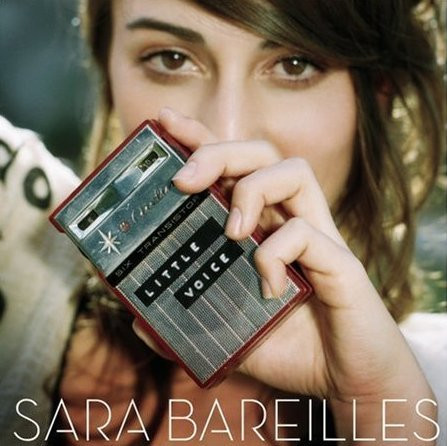Sara Bareilles’ “Love Song” is a track that resonates deeply with listeners, but often, its true meaning gets lost beneath the surface. While many interpret it as a straightforward, albeit slightly angsty, love song directed at a former flame, the reality is far more nuanced and industry-critical. This hit single was born not from romantic inspiration, but from the frustrating demands of her record label, who pressured her to craft a commercially viable “Bareilles Love Song” to boost her market appeal.
The irony is palpable. Bareilles, an artist known for her authentic songwriting and soulful voice, found herself facing a creative block when tasked with manufacturing a love song on demand. In her own words, describing this period, she revealed, “They had encouraged me to keep writing, and I just wasn’t having any luck, and I was turning in the beginnings of ideas and snippets of moments of a song, and I was just getting a really sort of blasé reaction to everything. I started to get really insecure about it, and then I got really pissed off at myself for caring what anybody thought.” This quote perfectly encapsulates the stifling effect of external pressure on genuine artistic expression. The label’s well-intentioned, yet creatively bankrupt, request to produce a “marketable love song” nearly extinguished the very spark they sought to ignite.
“I Won’t Write You a Love Song”: A Lyric of Liberation
The core lyric, “I’m not gonna write you a love song,” isn’t a rejection of love itself, but a powerful declaration of artistic independence. It’s a direct response to the industry’s cookie-cutter approach to music, where artists are often molded into marketable commodities rather than celebrated for their unique voices. Bareilles sings, “they all say things you want to hear,” highlighting the superficiality of the industry’s feedback and the pressure to conform to expectations. Her plea, “I’m trying to let you hear me as I am,” underscores her desire to be accepted and valued for her true artistry, not for a manufactured persona.

Sara Bareilles performing her hit song “Love Song”, a defiant anthem against record label pressure to create a marketable love ballad.
The line, “I’ll walk the seven seas when I believe that there’s a reason to write you a love song,” further emphasizes this point. She’s not opposed to writing love songs, but the inspiration must be genuine, not forced. The demand for a love song, ironically, leads to “blank stares at blank pages,” illustrating the creative paralysis that can occur when authenticity is sacrificed for commercial appeal. The brilliance of “Love Song” lies in its meta-narrative; it’s a love song born from the inability to write a love song on command, a defiant act of self-expression disguised as compliance. The ultimate message is clear: “I believe there’s a way you can love me because I say I won’t write you a love song.” Accept me for who I am, for the music that flows naturally from within, not for what you demand me to be.
Beyond the Music Industry: The Universal Struggle with Performance Pressure
While “Love Song” is rooted in Bareilles’ experience with the music industry, its message transcends the specific context of record label pressures. It speaks to a universal struggle – the pressure to perform, to meet external expectations, and to compromise one’s authentic self in the process. We all, in various aspects of our lives, face demands to be a certain way, to produce certain results, whether in our careers, relationships, or even personal aspirations. This pressure can be incredibly stifling, hindering our creativity and genuine expression.
Just as Bareilles felt suffocated by the demand to write a “bareilles love song,” we too can feel paralyzed when forced to create or perform under duress. Authenticity cannot be manufactured; it blossoms from genuine inspiration and a sense of freedom. “Love Song” serves as a potent reminder that true creativity and genuine connection arise when we are accepted and loved for who we are, without the burden of constant performance and manufactured expectations.
Why “Love Song” Resonates
“Love Song” has resonated with millions not just because of its catchy melody and Bareilles’ powerful vocals, but because of its honest and relatable message. It’s an anthem for anyone who has ever felt pressured to be someone they’re not, to create something inauthentic, or to compromise their true self for external validation. The song’s enduring appeal lies in its celebration of authenticity and its defiant stance against the forces that seek to stifle genuine self-expression. It encourages us to resist the pressure to perform and to embrace our true voices, even when faced with demands to conform. “Bareilles love song” became iconic precisely because it wasn’t the manufactured product her label desired, but a raw and honest expression of artistic integrity.
In conclusion, Sara Bareilles’ “Love Song” is far more than a simple ballad. It’s a powerful statement about artistic integrity, the pressure to perform, and the importance of staying true to oneself. It’s a song born from defiance, irony, and ultimately, authenticity. Understanding the true story behind this iconic track deepens our appreciation for its message and for Sara Bareilles’ artistry.
